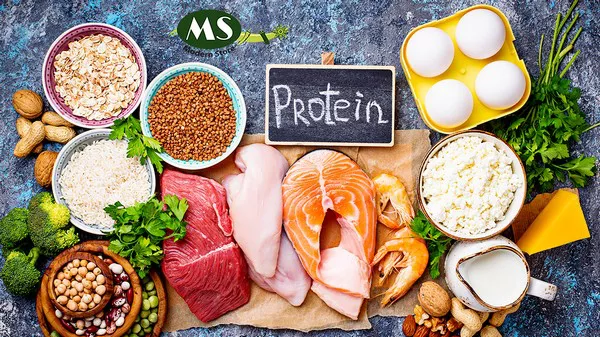Eggs are a staple in many cuisines around the world and have long been celebrated for their versatility, taste, and nutritional value. They are a rich source of essential nutrients, including high-quality proteins, vitamins, and minerals. Whether enjoyed as a standalone dish, incorporated into baked goods, or used in various recipes, eggs offer an array of health benefits. In this comprehensive article, we will delve into the caloric and protein content of one egg and explore how this nutritional powerhouse can be an integral part of a balanced diet.
1. The Caloric Content of One Egg:
One large-sized egg, weighing approximately 50 grams, contains around 70 calories. The majority of these calories come from fat and protein, with only a small portion attributed to carbohydrates. While eggs do contain some fat, it is important to note that the majority of this fat is of the healthier unsaturated variety, making eggs an excellent choice for those seeking a nutrient-dense and satisfying food option.
2. Protein Powerhouse:
Eggs are often celebrated for their high protein content, making them a popular choice for individuals looking to increase their protein intake. One large egg contains approximately 6 grams of protein, which is equivalent to about 12% of the daily recommended intake for the average adult. This protein content makes eggs an excellent choice for promoting muscle growth and repair, aiding in weight management, and supporting overall health.
3. The Protein Quality of Eggs:
Not all proteins are created equal, and the quality of protein in a food source is a crucial factor in determining its nutritional value. Eggs are often regarded as a gold standard for protein quality because they contain all nine essential amino acids that the body cannot produce on its own. This means that eggs are considered a complete protein source, offering a well-balanced profile of amino acids essential for various bodily functions.
4. Protein Digestibility:
Protein digestibility refers to the ease with which the body can break down and absorb the protein from a food source. Eggs boast an impressive protein digestibility score, meaning that the body can efficiently absorb the protein they offer. This makes eggs an excellent choice for individuals looking to maximize their protein intake and optimize the utilization of this vital nutrient.
5. Egg Protein for Muscle Health:
Protein is a crucial component in building and maintaining muscle tissue, making it an essential nutrient for athletes, fitness enthusiasts, and those looking to support their muscle health. The high-quality protein found in eggs provides the necessary building blocks for muscle repair and growth, making them an ideal addition to post-workout meals or snacks.
6. Protein for Weight Management:
Protein is well-known for its satiating effect, meaning that it helps keep you feeling full and satisfied after a meal. Including eggs in your diet can support weight management by reducing overall caloric intake and preventing excessive snacking between meals. Additionally, the combination of protein and healthy fats in eggs contributes to sustained energy levels, helping to curb hunger and prevent sudden spikes and drops in blood sugar.
7. Nutrient-Rich Egg Yolk:
It is important to note that the majority of the nutrients found in eggs are concentrated in the yolk. While egg whites are an excellent source of protein, the yolk is where you will find essential vitamins and minerals such as vitamin D, vitamin B12, choline, selenium, and omega-3 fatty acids. Choline, in particular, is crucial for brain health and development, making eggs an excellent choice for supporting cognitive function.
8. Protein in Cooking:
The protein content in eggs remains relatively stable whether they are cooked or eaten raw. While some nutrients, such as certain vitamins and antioxidants, may be slightly affected by heat, the protein quality and overall nutritional value of eggs remain largely intact during cooking.
Conclusion:
One egg serves as a nutritional powerhouse, providing approximately 70 calories and 6 grams of high-quality protein. Eggs are an excellent choice for those seeking a nutrient-dense food option that supports muscle health, aids in weight management, and provides an array of essential vitamins and minerals. Their versatility in cooking and their ability to be included in various dishes make eggs a staple in many diets worldwide. As with any food, moderation is key, and it is essential to consider individual dietary needs and preferences. Whether enjoyed as a scrambled breakfast, poached atop a salad, or baked into a delicious quiche, eggs can be a valuable addition to a balanced and nutritious diet.


